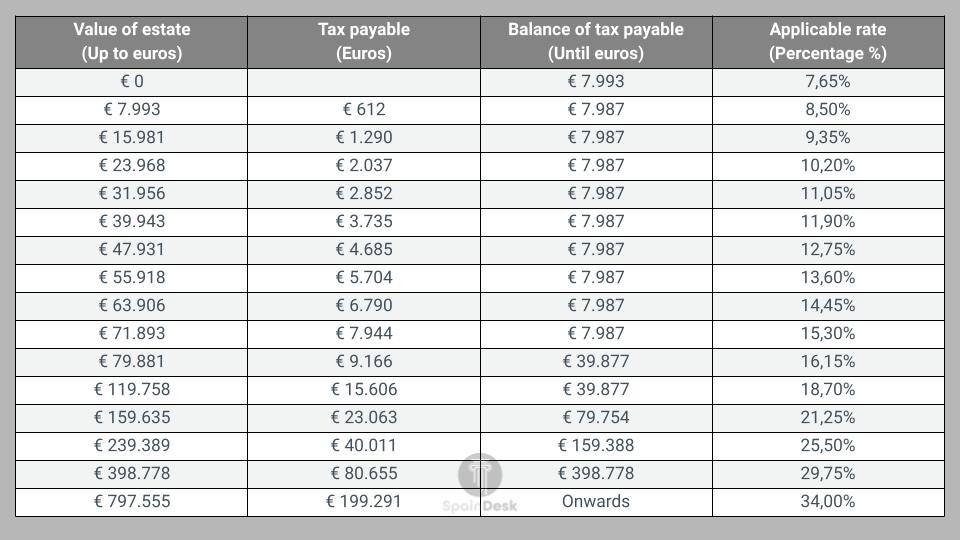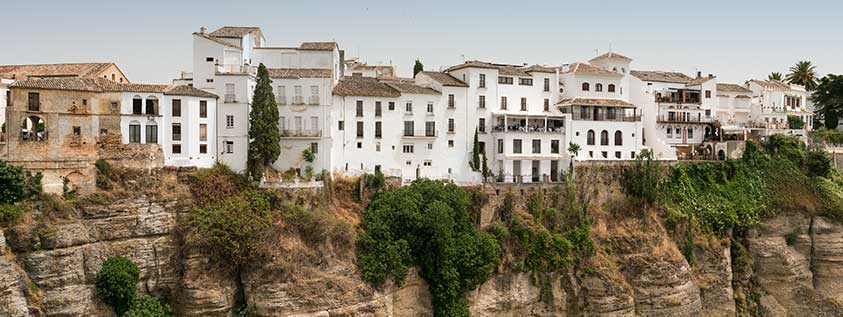Are you a non-Spanish resident considering tying the knot in Spain? Thanks to its stunning landscapes and vibrant culture, Spain is often called a land of love. But is getting married in Spain as an expat an option? It is. While non-Spanish residents’ marriage in Spain might appear intense, the process is quite simple.
In this blog post, we’ll explore all of the necessary steps required for couples who are not Spanish residents but still wish to have their special day on foreign soil. So come along with us and find out all about getting married in Spain as an expat.
Wedding categories in Spain
Spain has three wedding categories: civil, catholic, and symbolic. Only two weddings, the civil and catholic weddings are the only type of union or wedding ceremony that is legally accepted. Civil weddings are conducted by the local civil registry office in Spain, while Catholic weddings occur with a priest or bishop at the church or chapel. On the other hand, symbolic weddings are conducted away from the local civil registry office and are more of a symbolic marriage than a legal one. Other marriage options include civil partnership and civil union.
9 Tips on getting married in Spain as an expat

1. Check the requirements at the civil registry office
The first step towards getting married in Spain as an expat is to visit the local civil registry office. Usually, the Spanish civil registry office requires the following documents:
- Birth certificate and civil status document
- Marriage certificate for both parties if previously married
- Proof of marital status (divorced, widow, or single). In some cases, an affidavit may be required
- All the documents must be translated into Spanish and notarized at the Spanish Consulate in your home country
2. Prepare all the required documents
Compiling all the necessary documents with your partner is the most critical action in this process. Without a complete and accurate set of paperwork, you can expect an inevitable rejection from authorities. Some documents can take up to four weeks and may require several bureaucratic steps to be obtained. To be legally married in Spain, you must also have your residency permits and a confirmation from the local police station.
3. Submit all the documents at the civil registry
Once all the required documents are in order, it’s time to head to the civil registry office for an official marriage. It is important to remember that submit all documents in person, and no agency or lawyer can take your place. Upon arrival, fill out basic information on the form provided and attach the necessary documents. After review and acceptance of all paperwork, a reserved hearing will be set for both parties to confirm their wishes to marry in Spain. The civil registry or a local civil registry office is an institution that records vital events such as births, civil marriage, and death. In Spain, this is the office responsible for registering all marriages between Spanish citizens and non-Spanish residents.
4. Interview
After you go to the civil registry, a reserved hearing will be scheduled for you to authenticate your marriage through an interrogation. Both parties must present themselves in person at the civil registry. The interview process includes questions related to the address and nationality of both partners. In mixed marriages, this process may also involve a translation service to ensure that both parties understand each other’s language correctly before affirming their union.
5. The civil wedding
Once all the documentation is in order, a date for the civil wedding can be set. Civil ceremonies take place at the local town hall or civil registry office. The wedding ceremony is brief, typically lasting around 20 minutes. To be eligible to wed, both the bride and groom must meet two fundamental requirements: they must be of legal age (at least 18 years old) and declare their voluntary and intelligent consent for marriage. Furthermore, for civil ceremonies in Spain, one of the partners should either possess Spanish citizenship or have lived in Spain consecutively for a minimum period of two years.
6. Wedding planners and wedding services
Although it is possible to get married in Spain without the help of a professional wedding planner, some couples prefer to hire one. This will help you navigate the legal process, plan and organize all aspects of your wedding ceremony. Professional wedding planners can also assist in finding the right location and arranging all the paperwork.
7. Planning a Catholic Wedding in Spain
If you’re planning to have a Catholic wedding in Spain, you should meet some additional requirements. The wedding has to occur at the local parish or chapel and have a priest or bishop officiating.
To get married in Spain at a church, you need to meet certain requirements set by the local parish and the Catholic Church. You should speak with a priest from the church to understand what is required for a Catholic wedding in Spain. Generally, you will need the following documents:
- Baptismal certificate (from a Catholic Church)
- Verification of Freedom to Marry
- Pre-nuptial inquiry results
- Confirmation certificates issued by your priest or bishop
Obtaining these documents can take up to four weeks and you should have them before the wedding date. Once all the paperwork is in place, the parish priest will have to set up a reserved hearing. It is important to note that in some cases, a Catholic wedding may not be allowed if one of the parties is not Catholic. In this case, a mixed marriage may be allowed if both parties are willing to sign a statement of faith.
8. The local Spanish civil registry
This office is the official place for getting married in Spain. The local civil registry will require all the documents mentioned above to be presented and any other additional documents they may require. You must present a family book (Libro de Familia) at the local registry office. This document records all the vital information about your marriage, including birth and death certificates, civil status, divorce decrees, etc.
9. Symbolic ceremony
Some couples may opt for a symbolic ceremony, which is not legally binding. This type of ceremony does not require any official paperwork, but it is necessary to have a permit from the local town hall or the national police station. This type of ceremony can take place anywhere, from the beach to the mountains, with both religious and civil elements.
With a symbolic ceremony, you can customize your wedding to reflect exactly what you and your partner want. Incorporate readings of your choice into the service or feature religious elements. This is a great option for couples that want to get married in Spain but are not Spanish nationals or do not meet the legal requirements.

Frequent questions about getting married in Spain as an expat
How quickly can I get married in Spain?
The process depends on several factors and can take up to four weeks or more. The first step is arranging the required documents and applying to the local civil registry office or religious officials. Having a wedding planner can make this process easier, as they have experience in dealing with the paperwork. Once all the documents have been submitted, a date can be set for the wedding ceremony.
Can I get married in Spain if I live in the UK?
Yes, you can. You will need to present all of the necessary documents at your local civil registry office or to religious officials, as well as a document from your home country’s embassy confirming that you are legally allowed to get married in Spain. You will then need to meet with the local civil registry office in Spain and provide all the paperwork, including a marriage license issued by your home country’s embassy.
Once the legal process is complete, a wedding date will be set and you should then contact a local Spanish wedding planner to take care of all the necessary arrangements for the marriage ceremony.
Do you have to be a resident to get married in Spain?
No, you do not need to be a resident of Spain to get married. However, at least one partner must hold Spanish citizenship or have lived in the country for a period of two years consecutively.
A word from SpainDesk
Getting married in Spain is an amazing experience for all couples, regardless of Spanish residence. It’s a beautiful country full of rich romantic history and culture. With stunning ceremony venues and incredible natural sights for photos, getting married in Spain creates memories that will last a lifetime. However, it’s important to consider the legal ramifications of entering into a marriage agreement outside of your home country. Make sure you know all the documents and paperwork required, as well as any specific legal requirements for a civil or religious marriage. By considering all these factors in advance, couples can make sure their wedding in Spain is a memorable occasion full of joy and love.






































